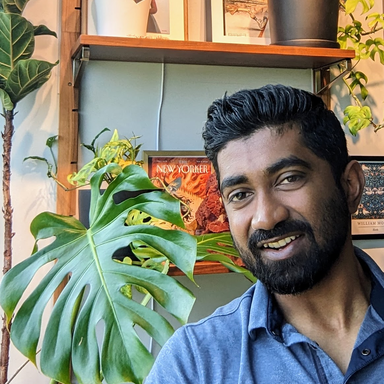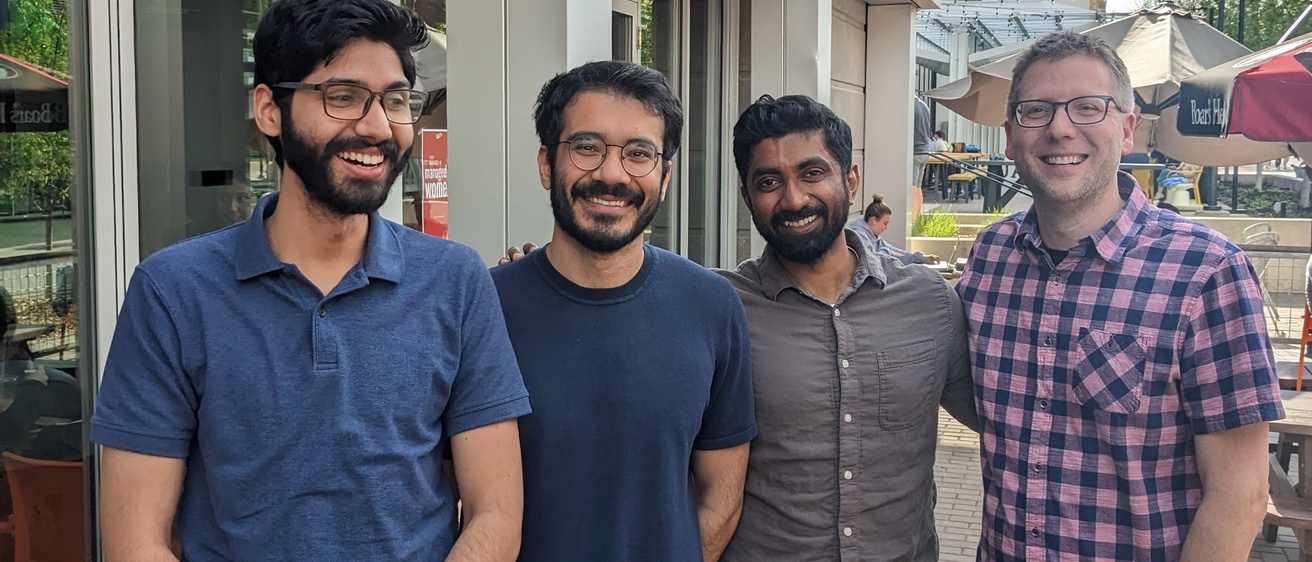Rishab Nithyanand, a UIowaCS Assistant Professor, leads the Sentinels for Privacy-Aware and Responsible Technological Advancement (SPARTA) Lab. He also co-leads, with SJMC's Brian Ekdale, the Algorithms and Culture Research Group (ACRG). He has also collaborated with Ekdale on both grants and Obermann Center Working Groups.
In addition to the following Q&A, where Prof. Nithyanand reflects upon this latest award as well as what comes next for him, his collaborators, and his students, one may check out:
How would you summarize both 1) your prior Minerva work and 2) this new project?
Our previous Minerva award aimed to understand how individuals are radicalized online. We studied how social media interactions influenced users' personality traits, focusing on traits linked to radical and extremist behavior. Our research revealed that coordinated campaigns by political actors, extremist groups, and nation states were responsible for much of the online manipulation. Our recently awarded Minerva grant focuses on comprehending the nature of these coordinated campaigns. We aim to uncover vulnerabilities in online platforms and their recommendation algorithms which enable coordinated mass manipulation. Our goal is to systematically analyze and identify these vulnerabilities, developing mechanisms to prevent their exploitation.
This research has been conducted by the Algorithms and Culture Research Group (ACRG), a interuniversity/interdisciplinary outfit: how did this unique collaboration melding the humanities, social sciences, and computational sciences come about…
ACRG formed in 2015 as an interdisciplinary reading group at the University of Iowa Obermann Center for Advanced Studies. The group aimed to explore how scholars across disciplines discussed and studied algorithms. I joined in 2018 after joining UIowa CS faculty. ACRG has since transformed into a dedicated research group focused on understanding the societal and cultural impact of algorithms. Today, Brian Ekdale (SJMC) and I co-direct ACRG, which comprises faculty and students from Penn State U, Drake U, Washington U, and diverse fields like Computer Science, Journalism, Communication Sciences, African American Studies, and Media Studies. Together, we tackle research problems, drawing on insights and methodologies from various academic paradigms. Our group's unique strength lies in its openness to and expertise in the computational sciences, social sciences, and humanities, enabling us to address significant challenges targeted by our Minerva awards.
… and what value to society do you feel such cross-sectional research, with its diverse cadre of members (e.g., faculty, researchers, PhD students) offers?
Having a diverse range of disciplines and a collaborative group of individuals has greatly enriched both myself and my PhD students. Specifically, I have noticed a rapid development of a mature and holistic understanding of the research they undertake. I believe that the exposure to social science and humanities perspectives within ACRG plays a significant role in this growth. I am hopeful that the students who emerge from our group will carry this maturity and interdisciplinary mindset into their own research careers, ultimately leading to more positive impacts on society.
How do you see this DoD grant impact your research, the direction of your lab, and possibly UIowaCS | CLAS | IOWA?
The Minerva award provides our lab and ACRG with the opportunity to pursue one of the most critical research challenges of our era: preventing algorithm-aided mass manipulation of society. With these resources, we can attract more PhD students to contribute to this research in the near term. Looking ahead, we aspire for these awards and our work to establish ACRG, the SPARTA Lab, UIowa CS, and CLAS as leaders in impactful, high-quality, and interdisciplinary computational research.
Two of your PhD students, Hussam Habib and Sarmad Chandio, are among said collaborators:
-
for this research and in general: how would you characterize the role of students (whether undergraduate or graduate) in such endeavors
-
with SJMC alums also collaborating on this grant; do you expect/value your own students to stay involved with their own doctorates in hand (eventually!)
Our project relies heavily on the invaluable contributions of our PhD students, and it is no exaggeration to state that this award would not have been possible without their hard work. They serve as a constant source of motivation, propelling us forward and carrying out the majority of the workload in our projects. I would love to have each of them continue to participate in the ACRG after graduating! Their continued participation would undoubtedly enrich the group and contribute to its ongoing success.

What advice do you have for fellow researchers when it comes to forming fruitful partnerships?
[With this project – but also your “Beyond the FTC” work with UI Law and Harvard - in mind]
I have been asked this question on multiple occasions, and I firmly believe that there is no single formula for establishing successful research partnerships. However, based on my experiences collaborating with ACRG and UIowa Law, I have identified several factors that have played a significant role:
- Maintain a genuine interest in working across disciplines. Personally, I am driven by the understanding that computer science alone is insufficient to address society's most pressing problems. The challenges I strive to solve involve the intersection of humans, technology, and public policy. Therefore, the participation of other disciplines becomes crucial for making substantial progress.
- Seek out individuals who are both enjoyable and kind to work with, and reciprocate by being a fun and kind collaborator. The importance of this aspect cannot be overstated! When embarking on interdisciplinary research, setbacks and frustrations are inevitable. As you delve into another discipline, you encounter new norms and languages. What has consistently motivated me to persevere through failures is the genuine enjoyment I derive from interacting with these groups. Our meetings are filled with laughter, and there exists a genuine sense of chemistry within the team.
By embracing these principles, I have found that fruitful research partnerships can be forged, enabling us to make significant strides in addressing complex challenges.
